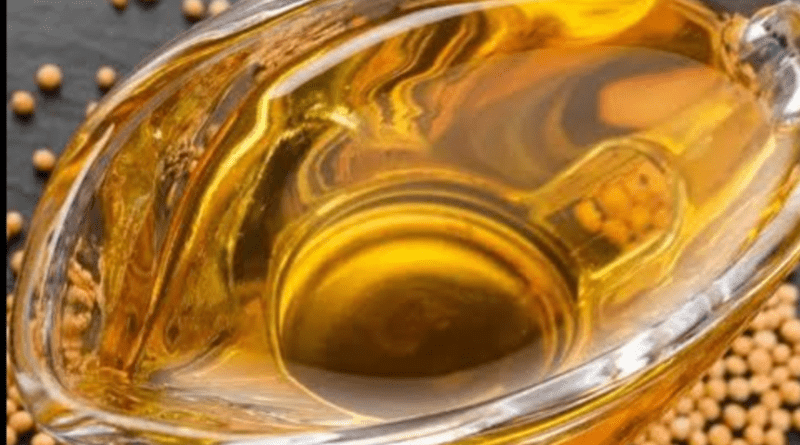Now Discover : Everything About Mustard Oil, From Nutrition to Uses.
It is unnecessary to introduce mustard oil because it is widely used in practically every Indian home, both for culinary purposes and for other home treatments.
Due to its versatility, mustard oil is utilized all over the world. It is a staple in every kitchen and is commonly referred to as Sarson ka Tel in India. Strong in flavor, mustard oil elevates the flavor of a variety of foods. It also offers a host of health advantages.
However, many individuals are more cautious about the type and quality of oil they regularly eat due to the cholesterol concern and the rise in heart disease. As a result, sales of healthful oils—like olive, sunflower, rice bran, and grapeseed oil, to mention a few—have increased dramatically.
Nutrition of Mustard Oil :
The composition of mustard oil is composed of approximately 60% monounsaturated fatty acids (MUFA) (consisting of 42% erucic acid and 12% oleic acid); 21% polyunsaturated fats (PUFA) (consisting of 15% omega-6 linoleic acid (LA) and 6% omega-3 alpha-linolenic acid (ALA)); and 12% saturated fats.
Because of its ideal ratio of omega-3 to omega-6 fatty acids and low saturated fat level, mustard oil is favored over a number of other oils on the market.
Cardioprotective Effects of Mustard Oil Are Health Benefits
A suitable edible oil to consume, mustard oil has a favorable LA:ALA ratio (6:5), is high in MUFA and PUFA, notably alpha-linolenic acid, and is low in saturated fatty acid (SFA).
Patients with Myocardial Infarction (MI) who used mustard oil reported lower rates of angina, heart failure, and arrhythmias. Hence, mustard oil is regarded as a beneficial option for those suffering from cardiovascular conditions.
The body has been shown to benefit from the necessary fatty acids N6 (linolenic acid) and N3 (alpha-linolenic acid). While N3 PUFA may reduce triglycerides, blood pressure, inflammation, enhance vascular function, prevent sudden death, N6 PUFA lowers LDL cholesterol but may also lower HDL.
Cuts Down Colds and cough
Mustard oil has long been used to treat colds.
Properties that are anti-bacterial, anti-fungal, and anti-carcinogenic
Mustard oil contains glucosinolate, which has antimicrobial, fungicidal, and cancer-preventive properties. It is used as a medication to treat human health issues. Thus, it keeps us safe from stomach and colorectal malignancies.
As an anti-fungal agent, ally isothiocyanate lowers infection and shields food from fungus growth.
Bolsters the red blood cell
One of the main sources of all the fats needed by the body for a variety of biological processes, including the formation of cell membranes, plasma, and lipids in cells, is mustard oil.
Mustard oil lowers cholesterol and enhances red blood cell (RBC) membrane integrity. Learn more about the easy methods for lowering cholesterol.
Functions as a Stimulant: It is well known that mustard oil, a naturally occurring stimulant, activates our sweat glands, enhancing blood circulation throughout the body. It also aids in the removal of toxins from the body and lowering body temperature.
Boosts blood flow throughout the body, relieving and revitalizing strained and fatigued muscles.
Increases Hunger
Underweight folks might take mustard oil because it is quite beneficial. By pumping your stomach and facilitating the flow of gastric fluids and bile, which are known to induce hunger, it makes you want to eat more.
Other uses of mustard :
Remarkable Massage Oil
Mustard oil massage during infancy enhances growth and sleep after massage.
When compared to newborns who do not receive massage, those who receive mustard oil massage have improved weight, length, and midarm and midleg circumferences.
Encourages Dental Health
Plaque removal is facilitated and your gums are strengthened with mustard oil. Bacteria encased in fatty membranes are the usual cause of plaque. We can further prevent gum bleeding by swishing mustard oil around in our mouths to assist dislodge fat-soluble germs.
Incredible Hair
Alpha fatty acids included in mustard oil keep our hair moisturized, vibrant, and promote faster hair growth. Antioxidants, minerals including iron, calcium, and magnesium, as well as vitamins A, D, E, and K, are all abundant in mustard oil.




